Did you know that over 70% of travelers face challenges with local payment methods when visiting a new country? Understanding how to manage your money abroad can make or break your trip. This guide is here to help you navigate the financial landscape of a serene yet economically rich destination.
From cash usage to exchange rates and digital payments, we’ve got you covered. Knowing the best payment options can save you from hidden fees or ATM troubles. Whether you’re budgeting or looking for safe transaction tips, this guide will ensure a smooth travel experience.
Ready to explore? Let’s dive into everything you need to know about managing your money in this unique destination.
Introduction: Discovering Brunei’s Unique Charm
Nestled on the island of Borneo, this small yet fascinating country offers a unique blend of tradition and modernity. With a population of just over 300,000, it’s a place where serene landscapes meet rich cultural heritage. Its capital, Bandar Seri Begawan, is home to stunning mosques and bustling markets that reflect its peaceful way of life.
Oil wealth plays a significant role in shaping the economy here. Nearly 56% of the GDP comes from oil and natural gas exports, making it one of the wealthiest nations in Southeast Asia. Despite this, the country maintains a modest and simple lifestyle, which is evident in its architecture and daily life.
When traveling here, managing your money effectively is crucial. Understanding the local currency and payment options can save you from unnecessary fees or inconveniences. Whether you’re exploring the tranquil markets or visiting iconic landmarks, being prepared ensures a smoother experience.
From the majestic Omar Ali Saifuddien Mosque to the vibrant Kampung Ayer, the cultural highlights are endless. These landmarks not only showcase the country’s heritage but also offer a glimpse into its harmonious blend of past and present. Knowing how to navigate the financial landscape here will undoubtedly enhance your journey.
Exploring Brunei’s Cultural and Economic Landscape
The cultural and economic landscape of this Southeast Asian gem is a fascinating blend of history and modernity. From its royal heritage to its modern infrastructure, this destination offers a unique experience for visitors. Understanding its roots and current dynamics can enrich your journey.
The Rich Heritage of the Sultanate
This country’s history is deeply rooted in its sultanate, which has shaped its culture and traditions. The Istana Nurul Iman, the world’s largest residential palace, stands as a testament to its royal legacy. This architectural marvel is not just a symbol of power but also a reflection of the nation’s pride.
Other cultural landmarks, like the Sultan Omar Ali Saifuddien Mosque, showcase intricate designs and spiritual significance. These sites offer a glimpse into the country’s rich past and its enduring traditions.
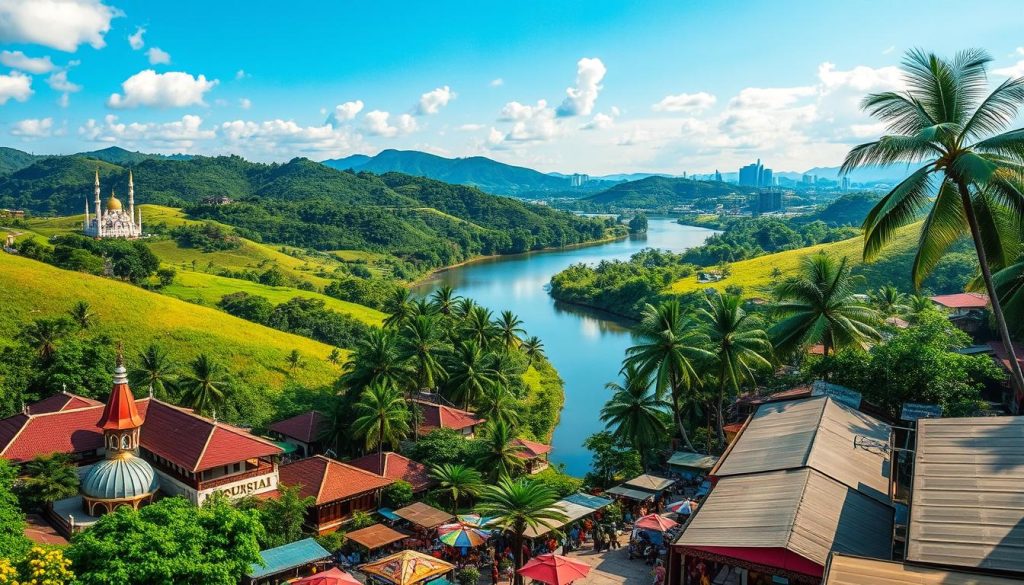
Oil Wealth and Modern Simplicity
Oil and natural gas have played a pivotal role in shaping the economy here. Nearly 56% of the GDP comes from these resources, making it one of the wealthiest nations in the region. Despite this wealth, the country maintains a modest lifestyle, blending modern convenience with traditional values.
This balance is evident in its architecture and daily life. From luxurious mosques to simple homes, the contrast highlights the nation’s unique character. Modern infrastructure, like banks and ATMs, ensures convenience for both locals and visitors.
Daily transactions here reflect this blend of tradition and efficiency. While cash is widely used in local markets, digital payments are becoming increasingly popular. This mix ensures that you can navigate your day with ease, whether you’re shopping or dining.
| Aspect | Traditional | Modern |
|---|---|---|
| Architecture | Historic mosques and palaces | Contemporary buildings and banks |
| Daily Life | Local markets and cash transactions | Digital payments and ATMs |
| Economy | Oil and natural gas exports | Diversifying industries |
Regulated economic policies ensure stability, making it a safe and predictable destination for travelers. Whether you’re exchanging currency or using an atm, the system is designed to be efficient and reliable. This combination of heritage and modernity makes it a truly unique place to explore.
Understanding Brunei’s Currency and Money Basics
The Brunei Dollar (BND) is the backbone of daily transactions in this oil-rich nation. Known for its stability, it’s pegged to the Singapore Dollar at a 1:1 ratio, making it a reliable choice for travelers. Whether you’re shopping at local markets or dining at a restaurant, the BND is widely accepted.
The Role of the Brunei Dollar (BND)
The BND plays a crucial role in the economy, supported by the nation’s oil and gas wealth. Its stability ensures that prices remain predictable, which is a significant advantage for visitors. You’ll find that most businesses, from small vendors to large banks, operate seamlessly with this currency.
Denominations include coins (1, 5, 10, 20, and 50 cents) and notes (1, 5, 10, 20, 50, and 100 BND). This variety makes it easy to handle transactions of all sizes. Whether you’re buying a snack or paying for a meal, you’ll always have the right option.
Key Currency Facts You Need to Know
Here are some essential facts to help you navigate financial transactions during your trip:
- The BND is widely accepted, but it’s always good to carry cash for smaller vendors.
- Most restaurants and shops also accept credit cards, especially in urban areas.
- Banks offer currency exchange services, ensuring you get the best rates for your money.
| Payment Method | Where It’s Accepted | Best For |
|---|---|---|
| Cash | Local markets, small vendors | Small purchases |
| Credit Cards | Restaurants, hotels, malls | Larger transactions |
| Digital Payments | Urban areas, modern businesses | Convenience |
Understanding these basics ensures you’re prepared for any financial situation. Whether you’re exchanging money at a bank or choosing the best payment option, you’ll navigate your trip with ease.
Brunei: Ultimate Travelers Guide to Currencies & Payments
Planning your finances ahead ensures a smooth travel experience. From cash to digital payments, having the right tools can save you time and money. The local currency, the Brunei Dollar (BND), is widely accepted and stable, making it easy to manage your expenses.
Most businesses, including restaurants and shops, accept credit cards. However, smaller vendors and local markets often prefer cash. Carrying a mix of both ensures you’re prepared for any situation. Digital payment apps are also gaining popularity, especially in urban areas.
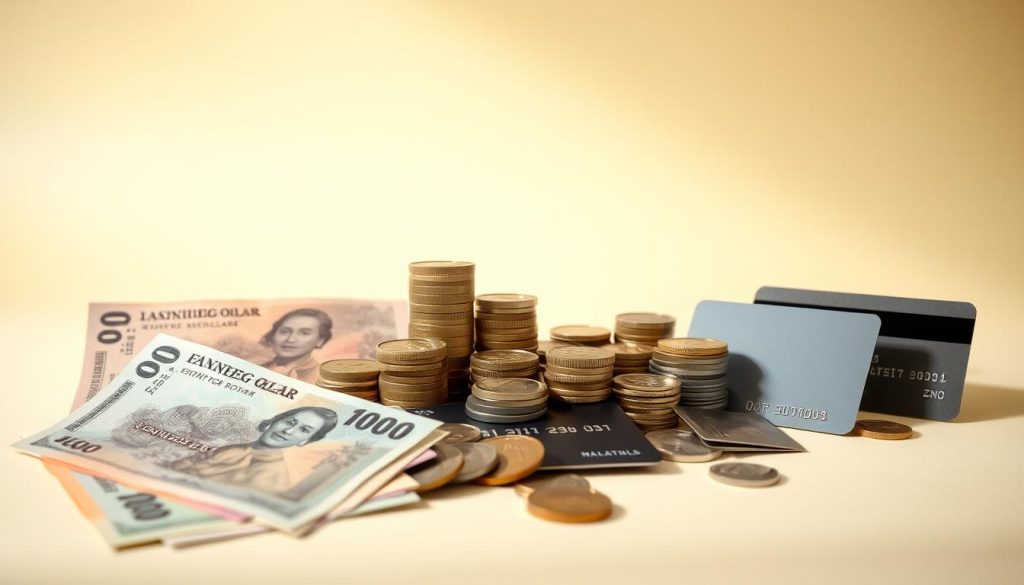
Preparing Your Payment Methods Before You Arrive
Before your trip, it’s essential to plan your payment methods. This minimizes unexpected costs and ensures you’re ready for any transaction. Start by notifying your bank about your travel dates to avoid card issues abroad.
Exchange some currency in advance or withdraw cash upon arrival. Most airports have ATMs and currency exchange services. Taxi services often accept cash, so having local currency on hand is helpful. Digital apps can also streamline payments for rides and meals.
Here’s a quick checklist to prepare:
- Notify your bank about your travel plans.
- Carry a mix of cash and cards for flexibility.
- Download local payment apps for convenience.
By planning ahead, you’ll navigate your trip with ease and avoid unnecessary stress. Whether you’re taking a taxi or dining at a local restaurant, being prepared ensures a seamless experience.
Navigating Payment Methods: Cash, Cards, and Digital Options
Managing your money efficiently while traveling can make your trip stress-free and enjoyable. Understanding the best payment methods for different situations ensures you’re always prepared. Whether you’re exploring local markets or dining at a restaurant, having the right tools saves time and keeps your budget on track.
Using Cash in Local Markets and Restaurants
Cash remains the preferred way to pay in traditional settings like local markets and small vendors. It’s widely accepted and often the only option in rural areas. Carrying small denominations makes transactions smoother, especially for street food or souvenirs.
In restaurants, cash is also common, particularly in family-run establishments. While larger venues may accept cards, having cash ensures you’re covered in any situation. It’s a good idea to keep some on hand for tips and small purchases.
Benefits of Credit, Debit, and Digital Payments
Credit and debit cards offer convenience, especially in urban areas. Most hotels, malls, and modern restaurants accept them, making them ideal for larger transactions. Digital payment apps are also gaining popularity, providing a quick and secure way to pay.
Here are some advantages of using cards and digital payments:
- Reduces the need to carry large amounts of cash.
- Offers better security and fraud protection.
- Simplifies tracking expenses for better budget management.
To avoid extra fees, check with your bank about international transaction charges. Withdrawing cash from ATMs in major towns ensures you get the best rates. Balancing cash and digital payments is the key to a smooth and economical travel experience.
Effective Currency Exchange Strategies
Getting the best value for your money starts with smart currency exchange strategies. Whether you’re exchanging cash or using digital tools, knowing where and how to convert your funds can save you time and money. Here’s a guide to help you navigate the process smoothly.
Finding the Best Exchange Rates
To secure the best rates for the Brunei dollar, compare options before making a decision. Banks often offer competitive rates, but money changers can sometimes provide better deals. For example, local exchange shops in urban areas might have lower fees than larger institutions.
Avoid exchanging currency at airport kiosks or hotels, as they typically charge higher rates. Instead, use ATMs in major towns or cities to withdraw local currency directly. This ensures you get the mid-market rate, which is often the fairest option.
Avoiding Hidden Fees and Extra Charges
Hidden fees can quickly add up, so it’s essential to read the fine print. Some banks and exchange services charge additional fees for transactions or withdrawals. Always ask about these costs upfront to avoid surprises.
Here are some practical tips to minimize fees:
- Use a low-cost ATM card for free or cheap international withdrawals.
- Make fewer, larger withdrawals to reduce fixed transaction costs.
- Pay in the local currency to avoid poor exchange rates and extra charges.
By following these strategies, you can safeguard your hard-earned dollars and make the most of your travel budget. Planning ahead ensures a stress-free and economical experience.
ATM and Banking Infrastructure in Brunei
Accessing your money while traveling is easier than you might think, thanks to a well-developed financial infrastructure. Whether you’re in the capital or exploring rural areas, you’ll find plenty of options to manage your funds efficiently.
Locating ATMs and Money Changers
ATMs are widely available, especially in urban centers like Bandar Seri Begawan. Most machines accept international cards, making it simple to withdraw cash. Look for ATMs near banks, shopping malls, or major landmarks for added convenience.
Money changers are also easy to find, particularly in busy areas. They often offer competitive rates, so it’s worth comparing a few before making a transaction. Always check for hidden fees to ensure you’re getting the best deal.
Banking Services for Travelers
Banks here provide fast and efficient services for visitors. Many offer currency exchange, and some even have dedicated counters for tourists. This ensures you can handle your finances without unnecessary delays.
Digital banking is becoming increasingly popular, allowing you to manage your money on the go. Most banks have user-friendly apps that let you check balances, transfer funds, and pay bills with ease.
| Service | Availability | Best For |
|---|---|---|
| ATMs | Urban centers, malls, banks | Cash withdrawals |
| Money Changers | Busy areas, markets | Currency exchange |
| Banking Services | Branches, apps | Account management |
As a tourist, you’ll find the banking system here both reliable and accessible. Whether you’re making an entry into the country or exploring its many attractions, managing your money is straightforward and stress-free.
Safety Tips for Managing Your Money Abroad
Ensuring your financial safety while traveling is just as important as planning your itinerary. A little preparation can go a long way in protecting your cash, cards, and personal information. Here’s how you can stay secure and stress-free during your trip.
Securing Your Cash and Cards
One of the best ways to protect your money is by dividing it among trusted locations. Use a money belt for daily expenses, keep extra cash in your hotel safe, and store backup funds in your carry-on. This strategy minimizes risk if something gets lost or stolen.
Always inform your bank about your travel dates and destinations. This prevents your cards from being flagged for suspicious activity. It’s also a good idea to carry a mix of cash and cards for flexibility. For example, use cash for small purchases and cards for larger transactions.
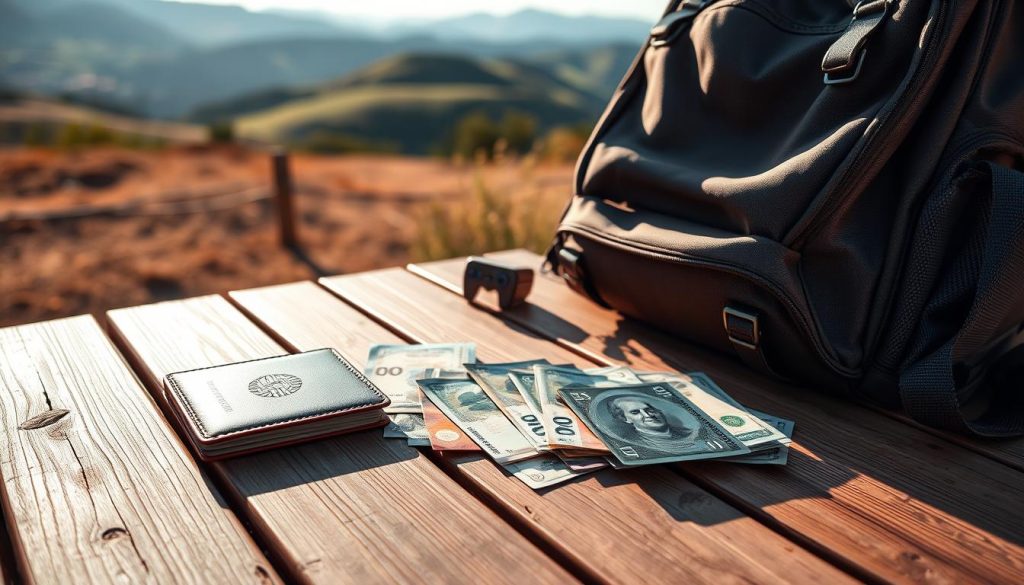
When using digital payments, ensure you’re on a secure network. Avoid public Wi-Fi for financial transactions, as it can be vulnerable to hackers. Enable two-factor authentication on your payment apps for an extra layer of security.
Practical Recommendations for Financial Safety
Here are some additional tips to keep your money safe:
- Carry only the cash you need for the day and leave the rest in a secure location.
- Use ATMs in well-lit, busy areas and shield your PIN when entering it.
- Regularly check your bank statements to spot any unauthorized transactions.
| Safety Tip | Why It’s Important |
|---|---|
| Divide your money | Reduces risk of losing all your funds at once |
| Inform your bank | Prevents card blocks during your trip |
| Use secure networks | Protects your data from cyber threats |
By following these steps, you can enjoy your tour with peace of mind each month. Planning ahead and staying vigilant ensures your financial safety and lets you focus on making unforgettable memories.
Travel Budgeting and Cost Control in Brunei
Planning your travel budget doesn’t have to be overwhelming—here’s how to do it right. A well-managed budget ensures you enjoy your trip without overspending. By understanding daily costs and mapping out expenses, you can stay on track and make the most of your journey.
Planning Your Daily Expenses
Creating a realistic budget is the first step to financial control. Start by listing your major expenses, like accommodation, meals, and transportation. Don’t forget to include smaller costs, such as attraction fees or souvenirs. This approach helps you avoid surprises and stay within your price range.
Mapping out daily spending is a good idea to ensure you’re prepared. For example, a budget traveler might spend around 35 BND per day, covering hostel stays, local meals, and public transport. Mid-range travelers can expect to spend 70-100 BND daily, while luxury travelers may budget 150 BND or more.
Here’s a breakdown of typical costs:
- Accommodation: Hostels start at 25 BND, while hotels range from 50-150 BND per night.
- Meals: Local meals cost 7-15 BND, while dining out can be 20-40 BND per person.
- Transportation: Public transport is affordable, with daily passes around 10 BND.
Planning in advance is a good idea to avoid overspending. Research prices for activities and attractions, and set aside a small buffer for unexpected expenses. This way, you can enjoy your trip without worrying about your budget.
Balancing Quality and Cost
Finding the right balance between quality and cost is the next step. For example, staying in a mid-range hotel might offer better comfort than a budget hostel, but it’s still affordable. Similarly, dining at local eateries can save money while giving you a taste of authentic cuisine.
Here’s a quick guide to balancing your budget:
- Prioritize your must-see attractions and allocate funds accordingly.
- Use public transport or walk to save on transportation costs.
- Cook some meals if your accommodation has kitchen facilities.
By following these tips, you can manage your expenses effectively and enjoy a stress-free trip. Planning in advance and staying flexible ensures you get the best value for your money.
Getting Around Brunei: Transportation and Payment Essentials
Exploring transportation options in this destination is key to a smooth and enjoyable trip. Whether you’re navigating the city or venturing into rural areas, understanding the available choices ensures you travel with ease. From public transit to ride-hailing apps, each option offers unique benefits to suit your needs.
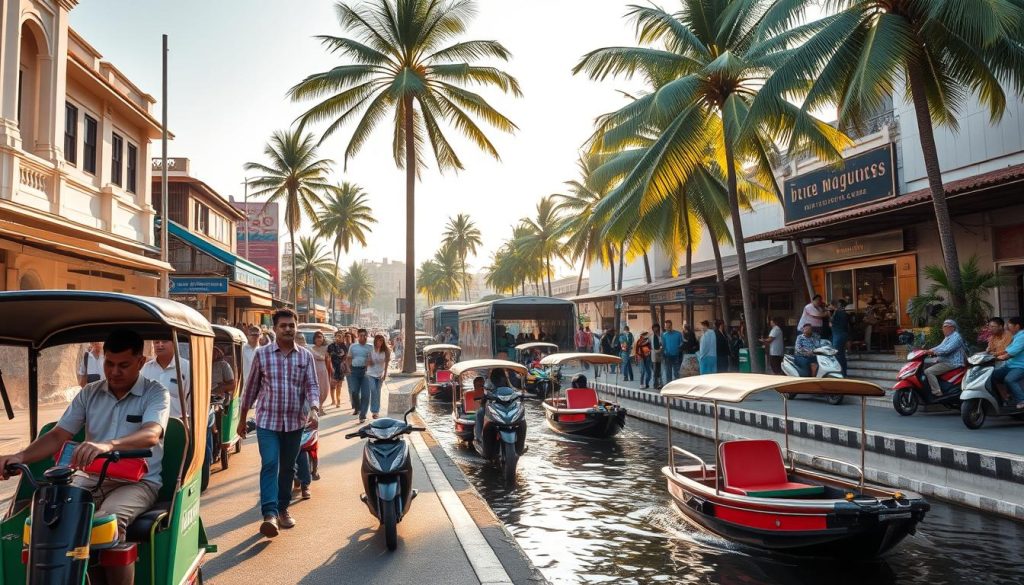
Public Transit, Taxis, and Ride-Hailing Options
Public buses are a budget-friendly way to get around, with fares starting at just $1. They operate from 6 a.m. to 8 p.m., though schedules can be infrequent. For faster travel, taxis are widely available, with fares from the airport to the city center costing around $25.
Ride-hailing apps like Dart provide a convenient alternative. These services are affordable, with trips costing as little as $10. Digital payments are often accepted, making it easy to manage your funds without carrying cash. Always confirm the fare before starting your journey to avoid surprises.
Tips for Driving and Local Regulations
If you prefer driving, it’s essential to know the local rules. Traffic moves on the left side of the road, and foreign driving permits are valid for up to one year. Renting a car is straightforward, but ensure you have adequate insurance for safety.
Be mindful of speed limits and parking regulations to avoid fines. In rural areas, roads may be less maintained, so drive cautiously. Having a GPS or map app can help you navigate unfamiliar routes with ease.
Here’s a quick guide to transportation costs:
- Public buses: $1-$6, depending on the route.
- Taxis: $10-$25 for short trips.
- Ride-hailing apps: $10-$15 for most journeys.
By planning your transportation in advance, you can keep your mind at ease and focus on enjoying your trip. Whether you choose public transit, taxis, or driving, each option offers a reliable way to explore this unique destination.
Additional Resources and Online Tools for Travelers
Real-time currency updates can save you from unexpected expenses. With the right digital tools, managing your finances abroad becomes effortless. Whether you’re tracking exchange rates or finding travel deals, these resources simplify decision-making and keep your budget on track.
Useful Apps and Websites for Currency Updates
Apps like GrabPay and Revolut are game-changers for travelers. They offer live currency updates, multi-currency accounts, and low fees for international transactions. These tools let you monitor exchange rates and make informed decisions on the go.
Websites like XE.com and OANDA provide reliable exchange rate data. They’re perfect for planning your budget before you leave home. By comparing rates from multiple sources, you can avoid hidden fees and get the best value for your money.
Here’s a quick list of tools to consider:
- GrabPay: Ideal for Southeast Asia, offering seamless digital payments.
- Revolut: A multi-currency app with real-time rate alerts.
- XE.com: A trusted website for live currency updates.
Using these tools ensures you’re always prepared, no matter where your travels take you. It’s a smart idea to integrate them into your daily routine for smoother financial management.
Simplifying Travel Finances with Online Resources
Online resources like Skyscanner and Kayak go beyond currency updates. They help you find affordable flights, accommodations, and even car rentals. These platforms are a one-stop solution for planning every aspect of your trip.
For instance, Skyscanner lets you compare prices across airlines, while Kayak offers budget-friendly hotel deals. Combining these with currency tools ensures you’re making cost-effective decisions at every step.
It’s also a good idea to consult multiple sources. Exchange rates can fluctuate, and relying on just one platform might lead to issues. By diversifying your resources, you can stay ahead of any financial surprises.
Here’s how to make the most of these tools:
- Download apps like GrabPay and Revolut before your trip.
- Compare rates on XE.com or OANDA for the best deals.
- Use travel platforms like Skyscanner to save on flights and hotels.
By leveraging these resources, you can focus on enjoying your journey without worrying about financial issues. Planning from the comfort of your home ensures a stress-free and well-organized trip.
Conclusion
A smooth travel experience starts with smart financial planning. Throughout this guide, we’ve explored essential strategies for managing your money effectively. From understanding local payment methods to leveraging digital tools, being prepared is one key choice for a successful trip.
By following the tips shared here, you can ensure safe and cost-effective travels. Whether it’s budgeting wisely, using secure payment options, or staying informed about exchange rates, these steps make a significant difference. The integration of practical advice and digital resources simplifies your journey, allowing you to focus on the experience.
Remember, thorough preparation enhances every aspect of your adventure. With the right strategies, you can navigate your travels confidently and enjoy every moment. Safe travels!
The above is subject to change.
Check back often to TRAVEL.COM for the latest travel tips and deals.
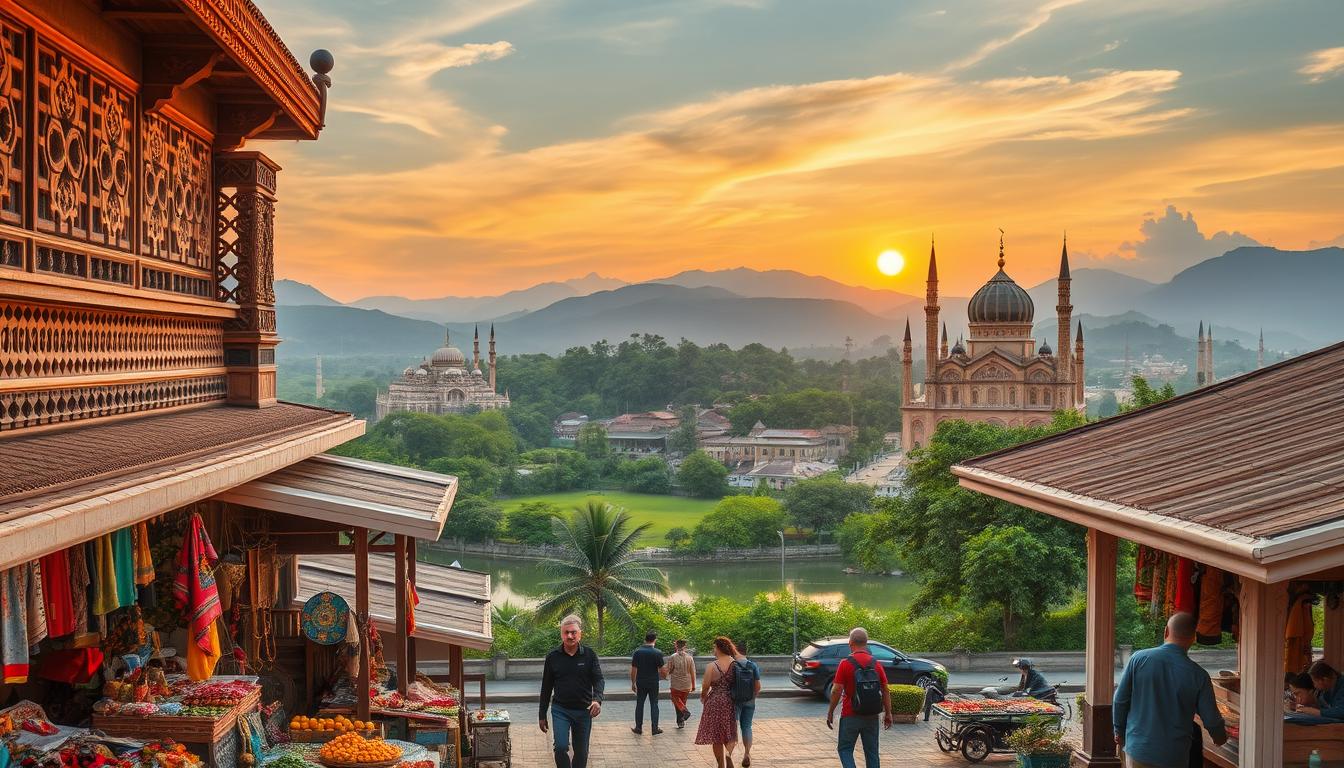
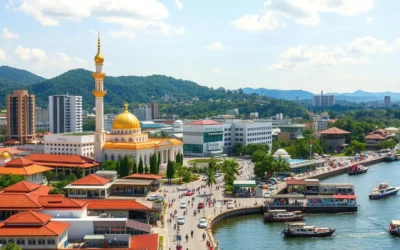

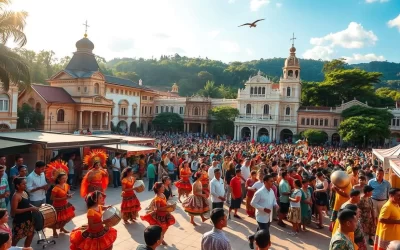
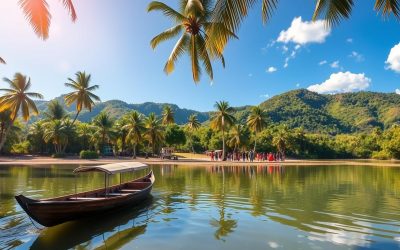
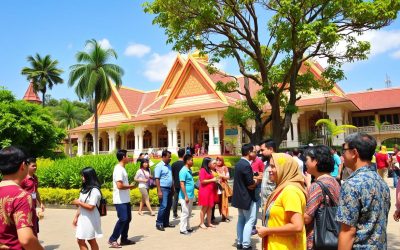
0 Comments